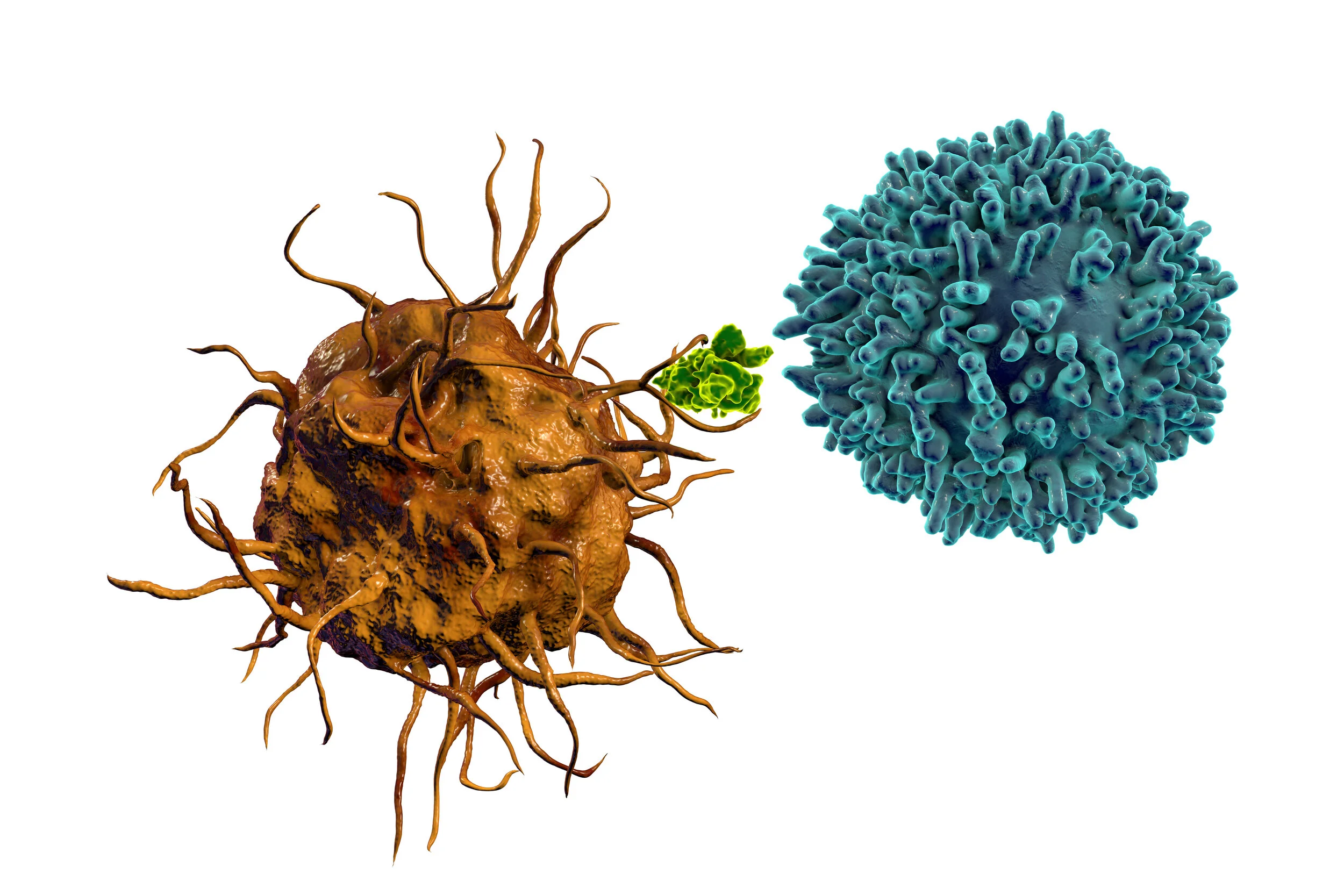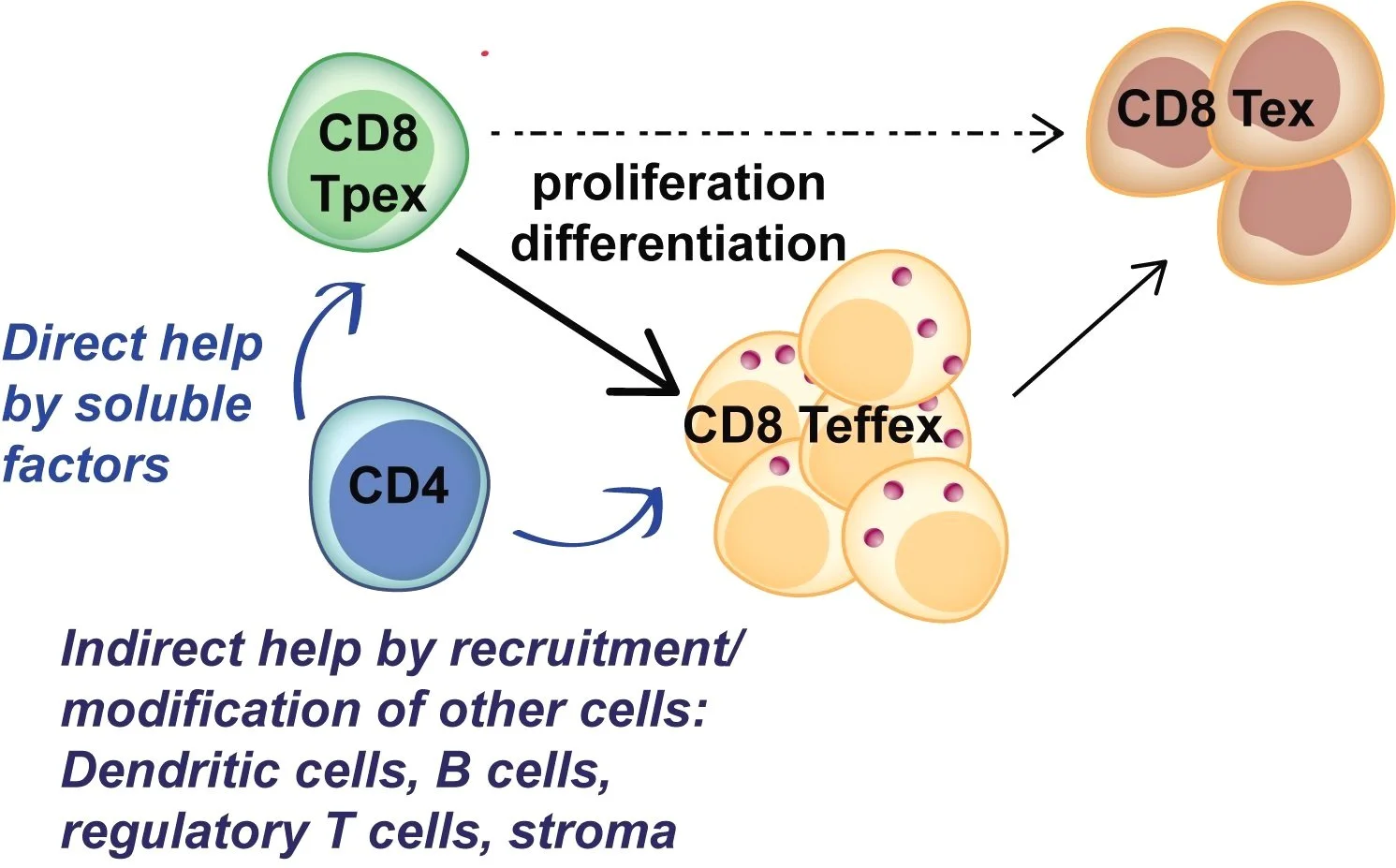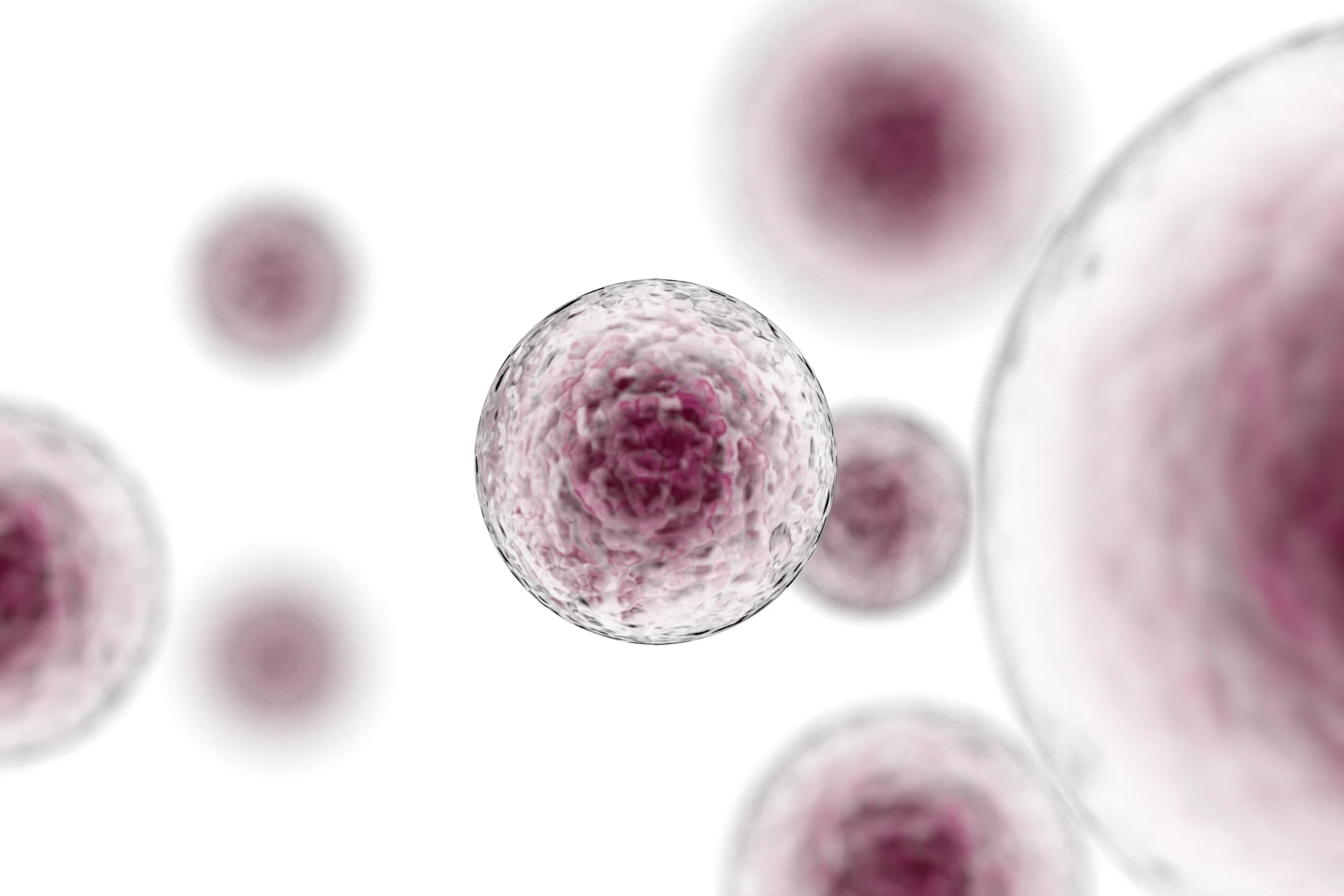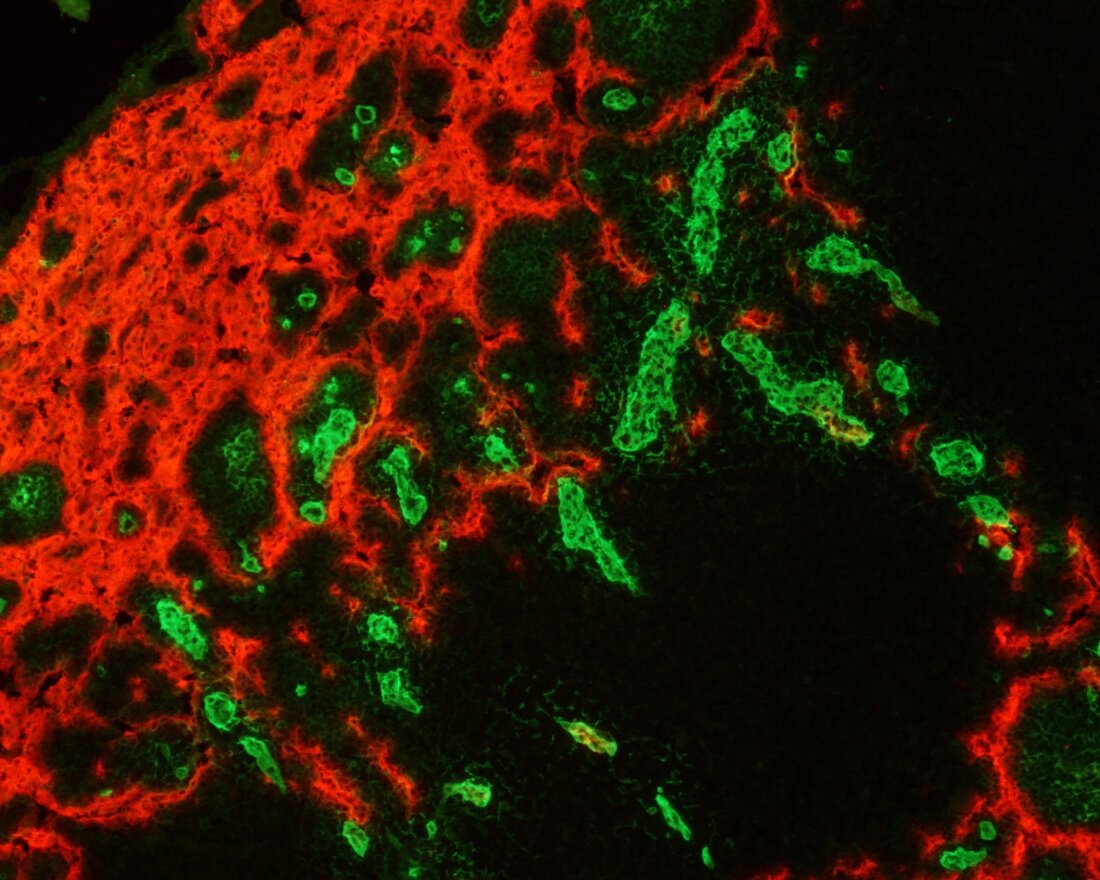
Science
“Understanding the factors that govern T cell differentiation and function will enable the identification of targetable molecules and pathways to improve the efficacy of immune interventions”
T cell costimulation
Recent findings identified that PD-1+ CD8 T cells recognizing tumor or chronic pathogens have a division of labor: T cell factor TCF-1+ PD-1+ CD8 T cells function as progenitor cells (Tpex) whereas TCF-1neg PD-1+ CD8 T cells can either be terminally differentiated/exhausted (Tex) or retain some effector-like function (Teffex).
TCF-1+ Tpex cells have high expression CD28, and we have shown that during PD-1 targeted therapies CD28 costimulation is required for the reinvigoration of CD8 T cell responses.
We now investigate how CD28 and other costimulatory molecules impact function and fate decisions in Tpex and thus modulate PD-1+ CD8 T cell responses.
T cell interactions
In addition to a unique set of costimulatory molecules, TCF-1+ Tpex cells also express a distinct set of chemokine/cytokine receptors. In collaboration with the Victora lab, we use LIPSTIC (Labeling of Immune Partnerships by SorTagging Intercellular Contacts) to study how cell-cell interactions in vivo impact the differentiation of CD8 T cells.
CD4 T cell Help
Even though the role of CD4 T cells in helping immune responses has been extensively studied, a mechanistic understanding of how CD4 T cells impact CD8 T cell responses in tissues and cancer is still lacking. During persistent antigen stimulation, CD4-help enhances the differentiation of effector-like PD-1+ CD8 T cells (Teffex). We are now addressing at the molecular and cellular level - the effects of CD4-help for anti-tumor immunity.
T cell responses in Hepatocellular Carcinoma
In collaboration with the Merad lab, Thomas Marron, and many others, using CyTOF, scRNA/CITE-seq, and multiplex tissue staining by MICSSS, we analyze resected liver tissue from HCC to study T cell differentiation in cancer patients. We then perform mechanistic studies in a novel mouse model of HCC (developed by the Lujambio lab) to uncover fundamental aspects of T cell dysfunction and reinvigoration.
T cell Differentiation in vivo
In collaboration with the Brown lab, we use CRISPR-based genetic tools to study T cell differentiation in vivo.
We are particularly interested in deciphering gene programs that promote the differentiation of chronically stimulated CD8 T cells into effective functional effector-like cells (Teffex).
Collaborators
-
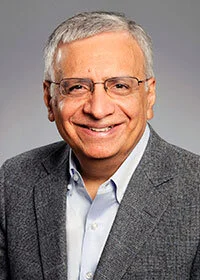
Rafi Ahmed
-

Emily Bernstein
-
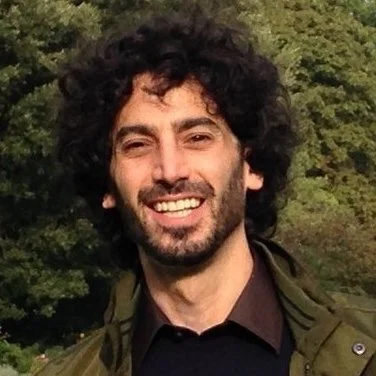
Brian Brown
-

Jerry Chipuk
-

Scott Friedman
-

Dirk Homann
-

Sergio Lira
-

Amaia Lujambio
-

Thomas Marron
-

Miriam Merad
-

Brad R. Rosenberg
-

Gabriel Victora
Background Images were graciously provided by collaborators and friends
T cell Interactions: Gabriel Victora and Tanja Schwickert
Main Page cover: John Grout
T cell responses in Hepatocellular Carcinoma: Biorender
Science & Publication cover: Glaucia Furtado
